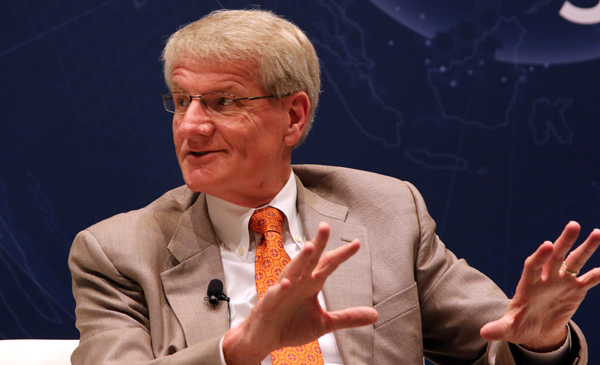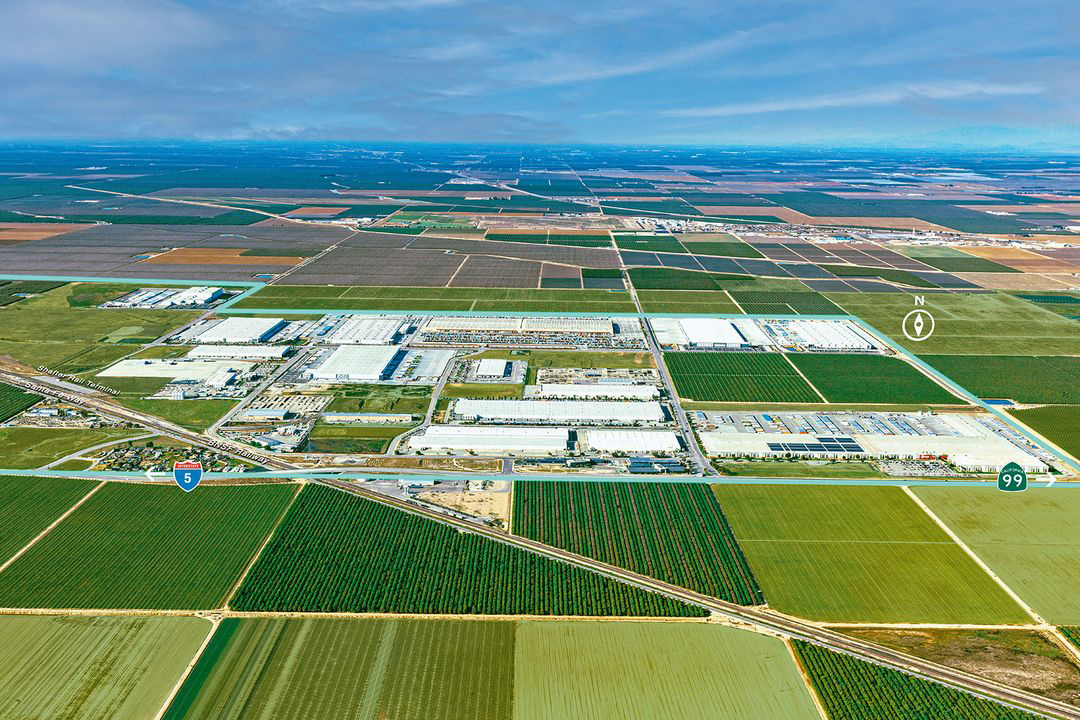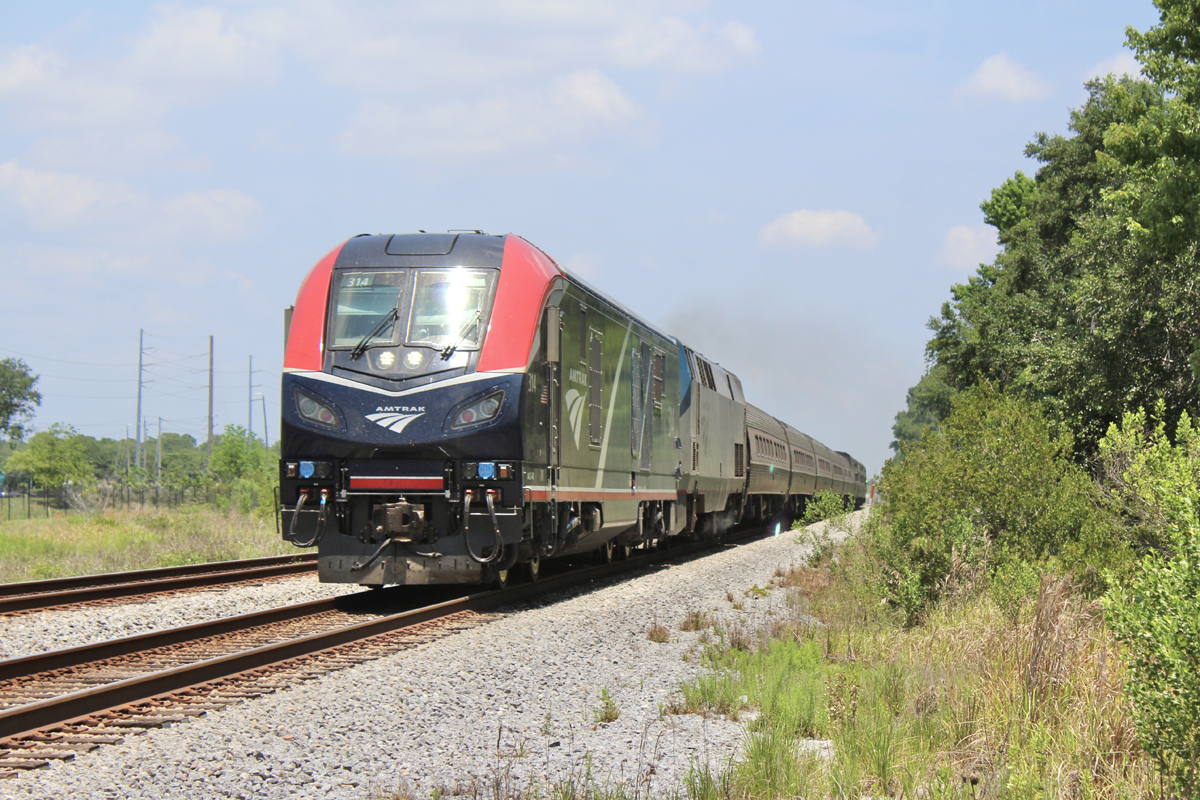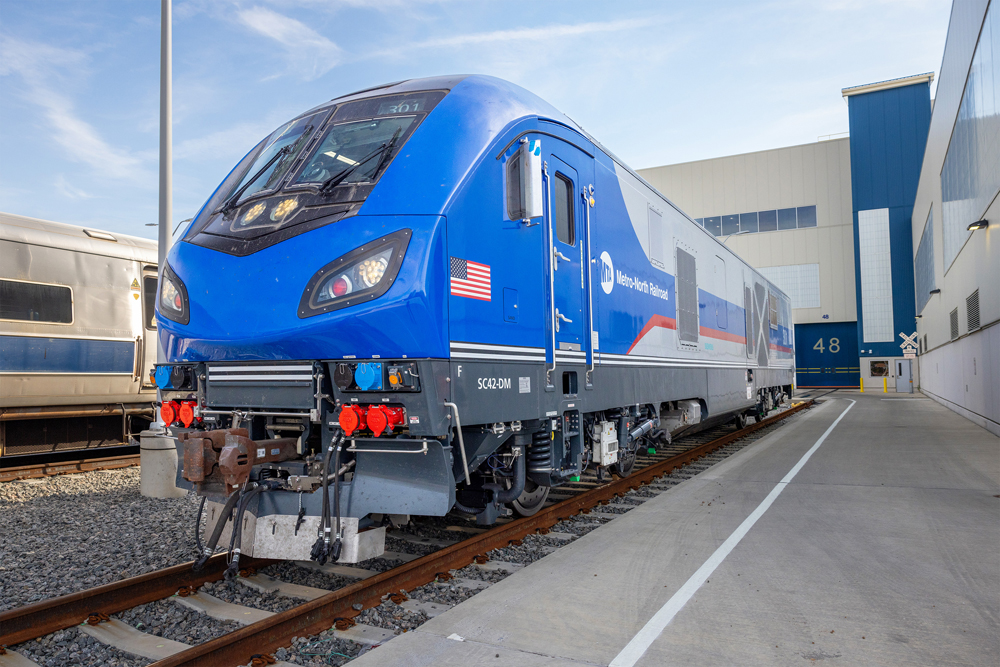It was also the one which clearly struck a nerve with two of the panelists.
Did they support legislation which would ban Chinese companies from participating in federally funded rail projects? And did they think the legislation would pass?
John Wories, president of Amsted Rail, and Bill Furman, president and CEO of The Greenbrier Companies — panelists, along with Ulisses Camilo, president and CEO of New York Air Brake — made it clear they not only supported the legislation, but consider it vital to the future of the U.S. rail supply industry.
“We’re in an economic war with China,” Furman said. “The president’s right about this. And if we don’t get the playing field leveled, they’re going to own this industry like they do in Australia.”
Furman was referring to U.S. President Donald Trump.
Wories said all the companies of all three panelists are involved in business in countries where “we see that type of luring in and then suddenly shutting down, or using intimidation, or using certain tools that are just not legal in the United States, much less that we have that kind of leverage because we’re so miniscule.”
The issue with Chinese firms — primarily China Railway Rolling Stock Corp., better known just as CRRC, the world’s largest rail equipment manufacturer — is that they are subsidized by the Chinese government and therefore able to undercut other manufacturers. That, as well as cybersecurity concerns, are why legislation exists to keep those firms from competing for government-funded U.S. contracts.
“China is dumping products all over the world,” Furman said. “… Their incursion into the rail industry, if it continues, will affect everyone in this room. It’s done by subsidized international ownership of these factories; stealth interests, to get under these regulations, and then … dumping prices. And that’s being done with subsidized Chinese government funding. And then the U.S. government adds a subsidy on top of that. What’s fair about that?”
Wories cited two Chinese initiatives — Made in China 2025, a strategic plan targeting rail manufacturing and nine other industries, and One Belt One Road, an international infrastructure investment and building plan —and noted the Chinese success in the high speed rail and transit markets. “You hear statistics like they have 80 percent of that particular market,” he said.
“The China 2025 or One Belt One Road are clear indications of what their desire is, and using that in the spirt of what they would define as the global betterment of society, but I genuinely believe there is an additional agenda that is more concerning to the U.S. marketplace.
“So I think it is imperative that we level that playing field with a fair and secure and transparent approach.”
Furman said 70 percent of current corporate espionage cases involve Chinese companies, and also said the Chinese engage in “the big lie” by opening and then threatening to close factories.
“The big lie is, well, we’re going to have to close these factories,” he said. “But they should include the conclusion: If you won’t give us a subsidy that we give over to the Chinese government, then we’re going to have to close these factories.
“They’re competing unfairly with factories that are here in America. … They’re buying the market. They’re dragging out five jobs for every job they create.”
Furman reiterated his view that “this is a war; we’re just not in it yet.
“We don’t want to be at war with them, and we all understand the effect that trade has on the economy. But we have to defend ourselves. And if we don’t defend ourselves, we are going to relinquish the freedom that we have to a form of economic system that we were warned about years and years ago.”















Couple of thoughts: 1 Pullman d a division of Wheelabrader went out of the railcar business long before any on heard of Chinese Manufacturing. 2 The US with its subsidized agriculture is doing the same thing to food producers all over the world especially in Africa so whats the difference. 3 there never has been a “free market” both from the trade point of view and from the gathering of capital-all one has to do is look at the financing of railroads from the beginning. Business and politics have always been intermixed -Christopher Columbus any one- But having said that all the complaints from manufacturers about the practices by the Chinese are essentially correct; however one can’t complain about China with out looking at its domestic hand maidens the financialists who have no concern for anything but their personal wealth. Stopping the Chinese is only working a small part of the problems.
crrc financial records are online. find the govt subsidy.I couldnt. Could be in the price paid for cars by chinese govt railways. I suspect it is more thier economy of scale, they are huge.
Anna Harding: Please refrain from cursing in the comments section.
We’ve heard the hysteria, now show us the numbers.
And show us what a US based railcar industry will have to do to compete.
The above comments are generic in nature and do not form the basis for an attorney/client relationship. They do not constitute legal advice. I am not your attorney. Find your own damn lawyer.
Mister Powell:
Thank you.
The above comments are generic in nature and do not form the basis for an attorney/client relationship. They do not constitute legal advice. I am not your attorney. My other car is a twin engine broom.
Anna,
The issue in this case is freight car construction that the CEOs were addressing. Greenbrier is 100% freight cars. Amsted and NYAB do make some passenger car components but their bread & butter business is freight cars. North America does have a freight car manufacturing industry that can meet the North American freight car needs, and doesn’t need government subsidized competition from China.
Everything the article says is true, especially Chinese companies (Government owned, by the way) receiving subsidies to beat anyone else’s prices.
Now while they’re not cukoo Commies like they were back in Mao’s time, and they’ve learned that making scads of money is a lot more fun than wearing cheap green denim and waving little red books, they’re still an authoritarian government that on a good day is akin to Fascist Italy and on a bad day to Nazi Germany.
I’ve got very severe qualms about doing business with them and have always had.
Mister Foster:
I am taking no position on the issue at this time. I am asking, “Show us the data”. Is it worthwhile for us to have a domestic passenger railcar industry? Is there sufficient demand to support one? Is there a strategic need for one? Show us the data, and explain the logic.
As for you, Mister Sweeney, here’s a curse for you: Oxo Bippo Burst and Burn. Do have a nice day.
The above comments are generic in nature and do not form the basis for an attorney/client relationship. They do not constitute legal advice. I am not your attorney. My other car is a twin engine broom.
Anna, this industry is no different from any of the other US industries the Chinese have targeted. Maybe someday the rest of the world will finally form a united front against its unethical business practices, theft of intellectual property, and secret data collection. Until then a country has to do what’s best for itself even if it means preventing the cheaper Chinese goods and services from taking over. I suspect that will actually be more cost efficient in the long run as well as far safer.